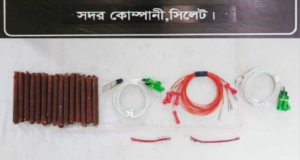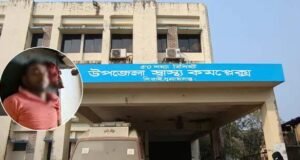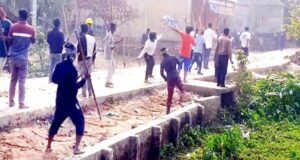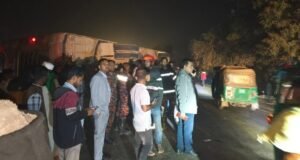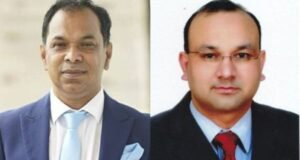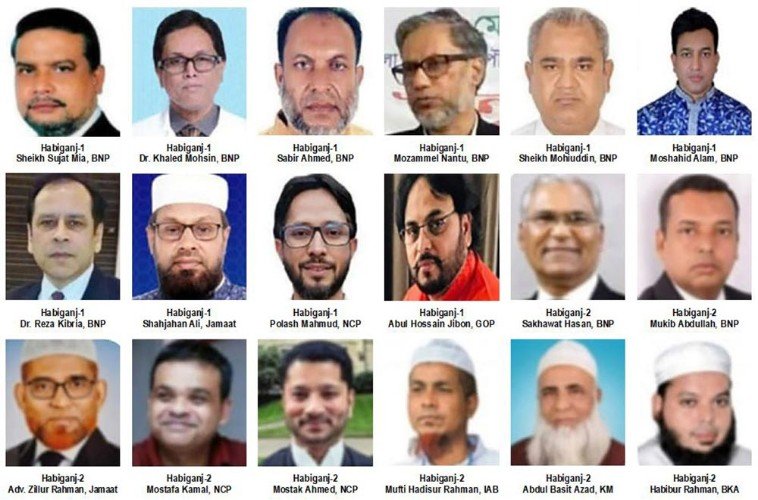
HABIGANJ, a scenic district in the Sylhet Division of north-eastern Bangladesh, is renowned for its natural beauty, tea estates, historical significance, and vibrant cultural traditions. Often referred to as the “land of tea, hills, and rivers,” the district has long held a special place in the nation’s history and economy.
Among its most defining features are the lush tea gardens that form part of Bangladesh’s famed Sylhet tea belt. The rolling estates of Madhabpur and Chunarughat upazilas stretch over miles of green hills, producing a significant portion of the country’s export-quality tea. These plantations – including the well-known Rashidpur, Nurjahan, and Sreemangal-adjacent estates – also sustain thousands of tea workers, many from indigenous communities. The tranquil landscapes and colonial-era tea bungalows have made the district a popular destination for both domestic and foreign tourists.
Beyond its tea gardens, Habiganj is famous for its biodiversity and natural reserves. The district borders the Lawachara National Park and is home to the Rema-Kalenga Wildlife Sanctuary, one of the largest forest reserves in Bangladesh. Rich in flora and fauna, the sanctuary shelters rare species such as hoolock gibbons, clouded leopards, and civets, making it a haven for nature enthusiasts and researchers. Other attractions, including the Khoiyachora Waterfall, Satchari National Park, and the picturesque Madhabpur Lake, highlight the region’s ecological splendour.
Historically, Habiganj holds deep roots in Bangladesh’s Liberation War of 1971. The district served as a key base for freedom fighters, with several battles fought near the Indian border. The historic Shaistaganj railway junction, one of the oldest in Sylhet, played a pivotal role in wartime communication and logistics. Habiganj has also produced several prominent political figures, reformers, and intellectuals who have contributed significantly to national politics and the democratic movement.
Culturally, the district represents a fusion of Bengali and indigenous traditions. Ethnic groups such as the Manipuri, Tripuri, and Khasi communities enrich its cultural fabric through their distinct language, music, and craftsmanship. Folk performances – including baul gaan, pala gaan, and jarigan – continue to thrive in rural areas, preserving the district’s centuries-old artistic identity. The presence of mosques, temples, and shrines such as the Dewan Bari Shahi Mosque in Bahubal and the Madhabkunda Temple reflect the area’s deep-rooted religious harmony.
Meanwhile, Habiganj has entered a new phase of political activity as Bangladesh prepares for the 13th Jatiya Sangsad election, expected in February 2026. The Election Commission (EC) has unveiled a comprehensive roadmap to ensure a fair and transparent voting process.
Across Habiganj, major political parties – including Bangladesh Nationalist Party (BNP), Bangladesh Jamaat-e-Islami, National Citizen Party (NCP), Jatiya Party (JaPa) and several smaller parties- are reorganising their grassroots structures. Potential candidates have begun visiting local communities, attending social events, and reviving campaign networks. Civil society organisations are also urging the EC to guarantee an inclusive and competitive election environment.
HABIGANJ-1: This constituency comprises Nabiganj and Bahubal upazilas.
This seat has 431,422 registered voters, including 213,544 women, 217,876 men, and 2 third-gender voters.
The constituency is geographically diverse, surrounded by tea gardens, hills, and vast haor wetlands, and enriched with natural resources such as the Bibiyana and Rashidpur gas fields and the Bibiyana power plant. Another key factor in Habiganj-1 politics is the strong influence of expatriates-particularly from London. Nabiganj has the highest concentration of UK-based expatriates in Habiganj district, with an estimated one lakh residents living abroad. Their economic contributions and direct political engagement often shape the election results.
The seat has emerged as one of the most politically charged battlegrounds ahead of the upcoming national election.
While Jamaat-e-Islami, Islami Andolan Bangladesh (IAB) , Khelafat Majlis (KM), and a faction of Jamiat-e-Ulema-e-Islam have already announced their candidates, the BNP and several other parties are still struggling to finalise their nominations.
Within the BNP, competition for the nomination is fierce. Party insiders say there are currently around 10 aspirants actively seeking nomination. These include former MP Sheikh Sujat Mia; cardiologist Dr. Khaled Mohsin, a relative of BNP acting chairperson Tarique Rahman’s wife Dr. Zubaida Rahman; former mayor Sabir Ahmed Chowdhury; UK Jubo Dal’s former leader Talha Chowdhury; Chicago BNP President Shah Mozammel Nantu; BNP leader Sheikh Mohiuddin; central Swechchhasebak Dal leader Mukhlisur Rahman; former UK Jubo Dal president Dewan Mukaddim Chowdhury Niaz; Nabiganj BNP President Syed Matiur Rahman Peyara, Upazila Jubo Dal Convener Moshahid Alam Murad, and former UK Jubo Dal president MA Rahim.
Adding to the speculation, Dr. Reza Kibria, son of late finance minister Shah AMS Kibria, may again contest from this seat with BNP ticket. Dr. Kibria, who previously ran on the BNP’s “Sheaf of Paddy” symbol in 2018, has remained inactive for some time but hinted that he is considering another run. “I will contest from Habiganj-1, but I haven’t decided under which banner yet,” he said, adding that he has “no hesitation” about running again with BNP if the opportunity arises.
Of these, Sheikh Sujat Mia, Mokhlesur Rahman, and Shah Mozammel Nantu have been particularly active on the ground, organising meetings and seminars to rally supporters. Mokhlesur Rahman, who is the lone BNP candidate from Bahubal Upazila, is seen as a strong contender. After returning from the UK following the August political upheaval, he reportedly secured several development allocations for the area, earning local appreciation.
Except for Sabir Ahmed, all six others are expatriate leaders. Sheikh Sujat Mia, once a key organiser of anti-authoritarian movement in London, was denied nomination in the 2018 polls, when the BNP-led alliance fielded Dr Reza Kibria. Disappointed, Sujat left for England but has since returned following the recent political changes and is now conducting intensive mass outreach. Many local voters believe he currently enjoys a lead in the race.
Former mayor Sabir Ahmed Chowdhury, meanwhile, has faced attacks and lawsuits for participating in anti-government protests but has remained loyal to his party and country. The other aspirants, too, are vying to gain visibility and favour from the BNP leadership through field-level engagement.
In this key Habiganj constituency, Jamaat has already declared Md. Shahjahan Ali, Secretary of the party’s Sylhet City unit, as its candidate. A native of Dattapara Village in Mirpur Union under Bahubal Upazila, he has been vigorously campaigning beyond regular party programmes.
A fierce contest between the BNP and Jamaat candidates is anticipated.
The KM has announced Principal Maulana Abdul Kaiyum Zaki, District’s Joint General Secretary, as its candidate. Based in Bahubal – a stronghold of Islamic scholars – Zaki has been actively conducting door-to-door campaigns, holding meetings and gatherings in markets and villages, and is seen as being in a favourable position locally.
Polash Mahmud, District Joint-Coordinator of NCP, and Abul Hossain Jibon, Central Joint General Secretary of Gono Odhikar Parishad (GOP), are also seeking nomination from their respective party.
For IAB, Mufti Maulana Tajul Islam, Vice-President of Habiganj District Committee, is being discussed as a potential candidate, though no visible campaign activities have yet been observed.
Jamiat Ulema has declared Maulana Siddiqur Rahman Chowdhury, General Secretary of District Committee, as its nominee, but his field presence remains minimal so far. However, former Jamiat student wing President Mufti Nizam Uddin Al Adnan – a nomination aspirant from the BNP-led alliance – has been actively campaigning, distributing greetings during national and religious festivals to build his local profile.
No visible activity has been observed yet from the NCP or other political groups in the constituency.
Many politically conscious voters believe that this year’s national election will be particularly significant, marking a potential turning point towards a “new Bangladesh free from fascism.”
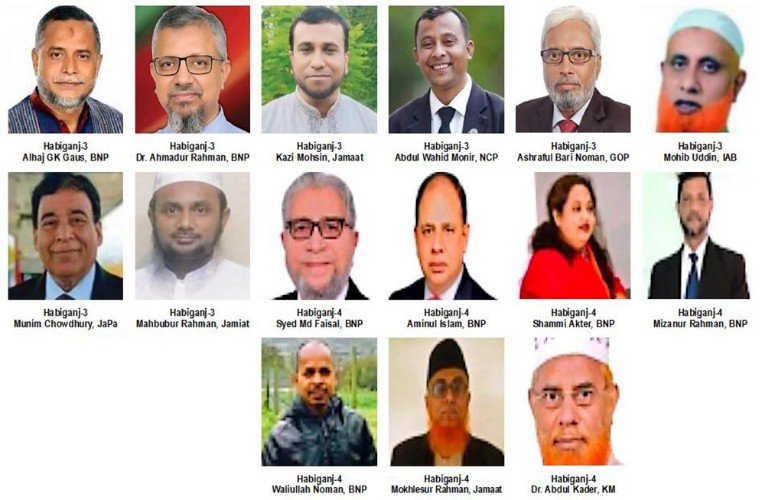
HABIGANJ-2: This constituency consists of Baniachong and Ajmiriganj upazilas.
This seat has 368,334 registered voters, including 182,188 women and 186,146 men.
With two heavyweight BNP hopefuls vying for nomination and the influential KM leader known locally as “Boro Huzur” entering the fray, the constituency is shaping up to be one of the most competitive races in Sylhet Division.
While Jamaat and the NCP are also in the field, they appear to be less popular. Historically dominated by the Awami League (AL), the seat is now witnessing a strong comeback bid by the BNP. Observers say the outcome will largely depend on two key voting blocs – the Hindu electorate of Ajmiriganj and the religiously conservative voters of Baniachong.
In total, nine candidates from seven parties are currently active, though the main contest is emerging among the two BNP leaders and KM’s charismatic figure, “Boro Huzur.” The final result, analysts say, may hinge on the Hindu vote swing and the influence of Islamic scholars in Baniachong.
From the BNP, two seasoned leaders are seeking nomination. One is Dr. Sakhawat Hasan Jibon, Adviser to the BNP Chairperson and former organising secretary. “I’ve served the party for decades and endured 14 false cases during the AL regime, 13 of which have been disproved in court,” he told reporters. “I spent years in Dhaka’s prisons, organised over a hundred free medical camps, and stood beside injured activists and families of martyrs. Since 1979, when late Ali was elected MP from the BNP, no one else has been. Over the past 16 years, I have visited 486 villages and built networks down to every ward. In one upazila election, all BNP candidates won – proving our strength at the grassroots. If nominated, the people will surely accept me.”
His main rival within the BNP is Ahmed Ali Mukib Abdullah, the party’s International Affairs Secretary and a close confidant of Acting Chairman Tarique Rahman. A long-time expatriate in Saudi Arabia, he returned home after 13 years following the fall of the AL government during the recent mass uprising. “Bangladesh is politically free, but not yet truly independent,” he said. “We want the next election to pave the way for a new government. On behalf of Khaleda Zia and Tarique Rahman, I’ve been visiting homes across the constituency. I’ve stood by the party for 16 years through its hardest times and spent from my own pocket. If nominated, I will gift this seat to our leader.”
Jamaat has declared Advocate Md. Zillur Rahman, President of the party’s Hatirjheel thana unit in Dhaka, as its candidate.
Although most of his political career has been Dhaka-based, he claims to have maintained strong local ties. However, local observers remain sceptical about whether he can overcome perceptions of being an “outsider.”
Representing the NCP, former acting president of the Habiganj Chamber of Commerce and ex-student leader Abu Hena Mostafa Kamal has declared his intention to run. “Bangladesh needs positive political change,” he said. “After the uprising, the NCP has been working towards that goal. I joined politics with honesty, and I believe people will accept me.” Another NCP hopeful, Barrister Mostak Ahmed, is known locally for his contribution to education.
IAB has nominated Baniachong Upazila President Mufti Hadisur Rahman, while Jamiat-e-Ulema-e-Islam (Date Tree) has fielded Mufti Ekhlasur Rahman Riyad, Member Secretary of District Committee, as its sole candidate.
On the other hand, KM Ameer Maulana Abdul Basit Azad, widely known as “Boro Huzur,” enjoys deep respect among local religious scholars and voters across communities. “The people of Baniachong and Ajmiriganj have shown overwhelming support,” he said. “Scholars, imams, and ordinary citizens – regardless of religion or background – are working for me. I believe they will choose me as their representative.”
Azad, who once led a mass protest against the late AL veteran Suranjit Sengupta in 2001, famously drew crowds so large that Sengupta was unable to enter the area during that movement.
From Bangladesh Khelafat Andolan (BKA), Maulana Habibur Rahman, District Committee President, is expected to contest under the “Banyan Tree” symbol.
Most residents of Baniachong are Muslims, many of whom follow religious scholars while Ajmiriganj has a sizable Hindu population that has traditionally supported the AL. This time, however, political analysts say their voting direction remains uncertain.
HABIGANJ-3: The constituency incorporates Lakhai, Habiganj Sadar and Shayestaganj upazilas.
This seat has 409,629 registered voters, including 201,138 women and 208,492 men.
The seat is witnessing an early surge of political activities as candidates from various parties step up their campaigns. With the national parliamentary election drawing closer, the political landscape of this seat has once again turned vibrant.
However, the AL will remain out of the race in this constituency as the party’s registration is currently suspended. The absence of the ruling party has opened the door for opposition and smaller parties, whose leaders are now working hard to consolidate voter support.
Several parties – including the BNP, JaPa, GOP, NCP and several Islamist platforms – have begun preparations to field candidates. Discussions are already underway about potential nominees, though official confirmations are yet to be made.
From the BNP, two prominent figures are vying for the nomination: Alhaj GK Gaus, the party’s Central Cooperative Affairs Secretary and current Organising Secretary for the Sylhet Division, and Dr Md Ahmadur Rahman Abdal, Joint Convener of the Habiganj District BNP.
The Jamaat-e-Islami has put forward Kazi Mohsin, party’s District General Secretary, as its candidate.
Advocate Abdul Wahid Monir, Joint Convener of the Habiganj District chapter, is seeking the nomination from the NCP. Among other contenders, Chowdhury Ashraful Bari Noman, President of Habiganj District GOP, is expected to contest under his party’s banner From the IAB, the likely candidate is Alhaj Mohib Uddin Ahmed Sohel, President of the party’s District unit.
Meanwhile, Jamiat Ulema may nominate Maulana Mahbubur Rahman Chowdhury Helal, the District unit’s Joint General Secretary.
JaPa is considering M.A. Munim Chowdhury Bulbul, a Central Committee member and Vice-President of the District chapter, for the ticket.
Political analysts describe this seat as a historically important and politically sensitive constituency. They note that, apart from traditional party loyalties, voters this time are likely to prioritise issues such as local development, employment generation, and access to quality education and healthcare.
BNP and Jatiya Party activists have already begun strengthening their organizational base, holding grassroots meetings, courtyard gatherings and public outreach programmes. Meanwhile, GOP has launched initiatives to attract first-time and young voters by introducing fresh district-level leadership.
HABIGANJ-4: The constituency includes Chunarughat and Madhabpur upazilas.
This seat has 512,308 registered voters, including 254,423 women, 257,884 men, and one third-gender voter.
Like elsewhere in the country, BNP nomination seekers are now actively campaigning in the seat, attending meetings, social and sports events, and connecting with voters. After nearly 17 years of one-sided elections, voters here are eagerly waiting to exercise their right to vote again in the upcoming national polls.
Speculation is rife in local markets and villages about who will secure the BNP ticket this time. Party sources say the BNP high command is conducting multiple surveys before finalising nominees. According to senior party insiders, preference will be given to those who played active roles in anti-government movements, faced arrests, and endured political persecution under the previous AL administration.
Traditionally, their votes have largely gone to the AL’s “Boat” symbol. However, this time, analysts say, the election outcome will once again hinge on the tea workers’ votes. The candidate who can win their trust is likely to triumph in this constituency.
Several BNP leaders have already entered the race for nomination. They include former lawmaker and ex-district BNP president Syed Mohammad Faisal, Central BNP Vice-President of the Nationalist Lawyers’ Forum and party’s Legal Adviser Advocate Aminul Islam, former MP and BNP Assistant Secretary for Local Government Affairs Shammi Akter, and District Joint Convener Advocate Mizanur Rahman Chowdhury.
Upazila Swechchhasebak Dal Member Secretary Faridur Rahman said he believes Syed Mohammad Faisal – Chairman of the Saiham Group – deserves the party nomination. Faisal, who has been financing numerous social and development initiatives through Saiham Group, is seen by many as a strong contender. “If the party nominates him, BNP’s chances of crossing the electoral river will be much higher,” Rahman added.
Party insiders note that Advocate Aminul Islam played a pivotal role during the AL’s tenure, providing legal support to countless BNP activists facing political cases. Meanwhile, former MP Shammi Akter gained widespread attention after she was reportedly assaulted by police during anti-government protests in Dhaka – footage of which circulated widely on social media.
Sources point out that this seat has never been won by the BNP; it has long been dominated by the AL, while the JaPa held it in 1986 and 1988.
Veteran journalist Waliullah Noman, known as a vocal critic of Sheikh Hasina’s regime, is also lobbying to contest the seat – either as a BNP nominee or under an allied banner.
District BNP Joint Convener Advocate Mizanur Rahman, known for his integrity and anti-fascist activism, is another strong contender. His grassroots credibility has earned him broad acceptance among local party workers.
Meanwhile, Jamaat has declared Kazi Maulana Mokhlesur Rahman, District Ameer, as its candidate. Determined to make inroads into the BNP and tea workers’ vote banks, Jamaat activists are campaigning door to door to mobilise support for him. Their target is clear – to secure a surprise victory for Mokhlesur Rahman in the election.
While BNP leaders remain preoccupied with internal meetings and factional divides, Jamaat workers are quietly strengthening grassroots networks and building direct voter connections, making the party organisationally stronger in Chunarughat-Madhabpur. “They are aiming to make a breakthrough this time,” said one local observer.
The KM has nominated its Central Secretary General Dr. Ahmad Abdul Kader, while Jamiat-e-Ulema has fielded Maulana Hakim Nuruzzaman, District Vice-President, who is actively campaigning across the constituency.
Local residents say , in the absence of AL, BNP stands a strong chance due to its loyal vote base. However, internal rifts within the BNP remain a major challenge. As political calculations evolve, Habiganj-4 is emerging as a constituency where alliances, organisational unity, and the tea workers’ loyalty could ultimately determine who wears the victory garland.
 Weekly Bangla Mirror | Bangla Mirror, Bangladeshi news in UK, bangla mirror news
Weekly Bangla Mirror | Bangla Mirror, Bangladeshi news in UK, bangla mirror news



